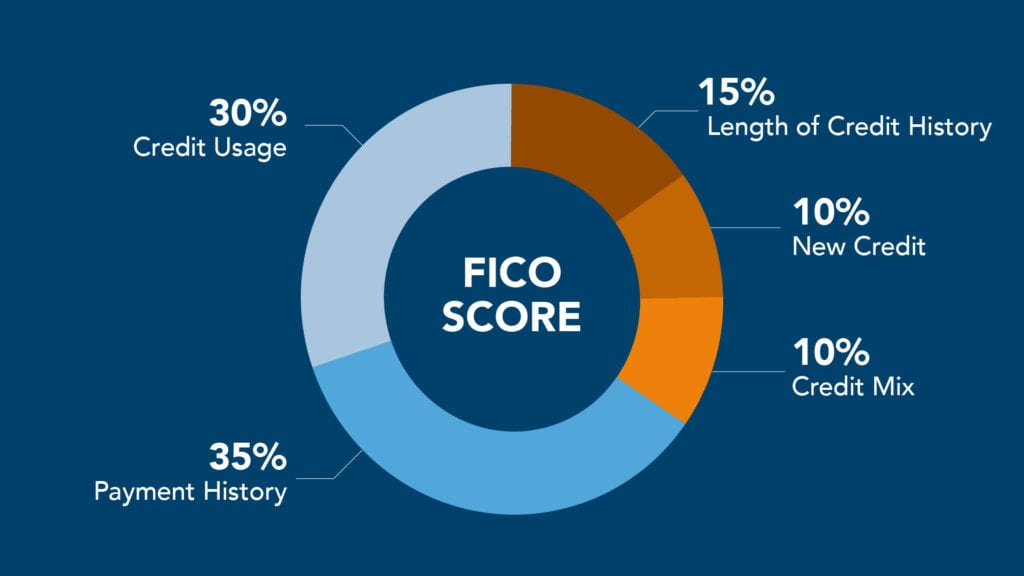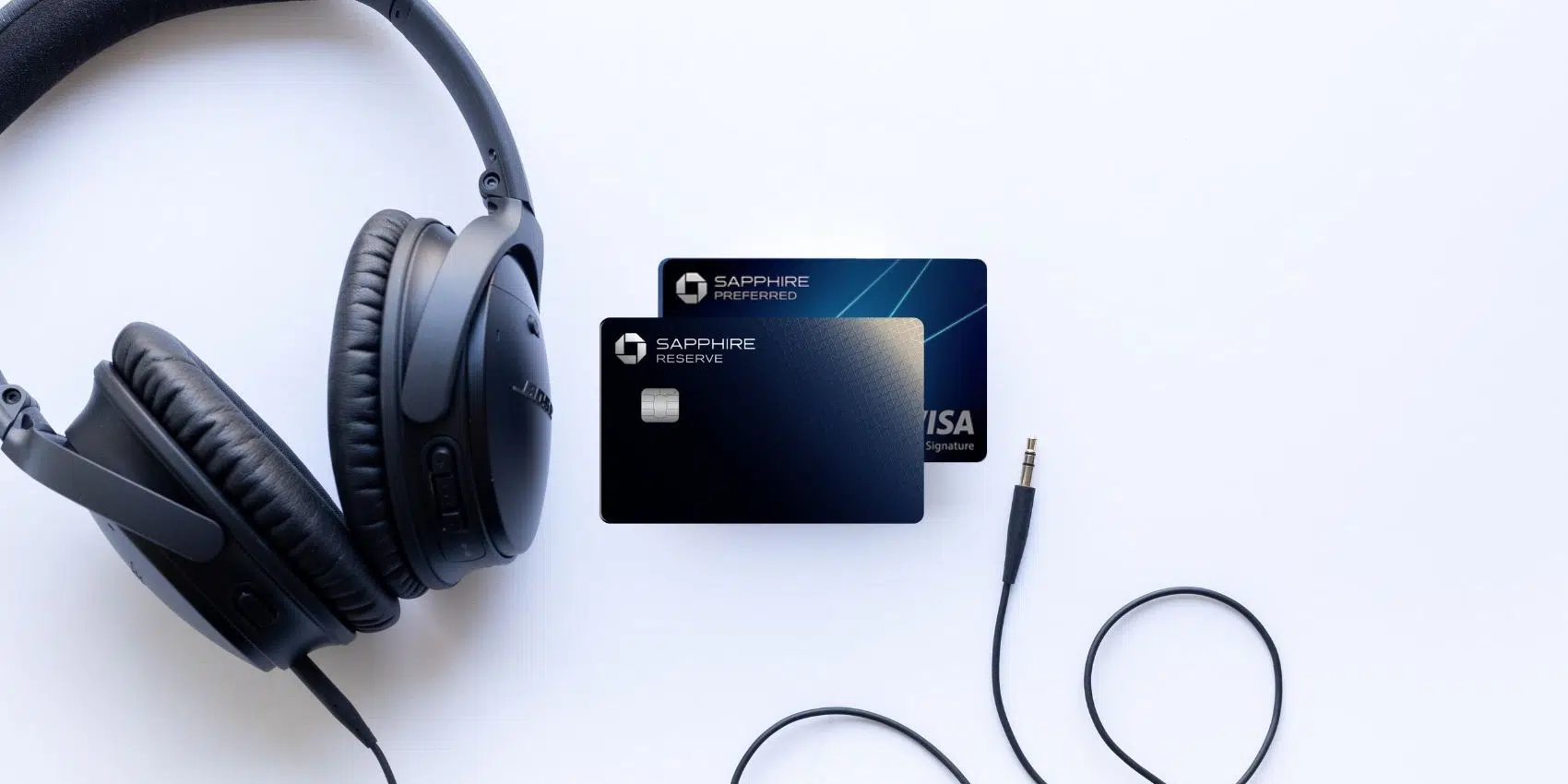If you're a business owner and you're not earning valuable points and miles with a business credit card … what are you waiting for?
I admit, the answer to that question could be many things. Perhaps you don't think your small business qualifies – although it likely does. Maybe your business doesn't spend much on credit cards – but it probably could. Or maybe you're afraid of how a business credit card will affect your personal credit score – let's dive into that one.
When it comes to credit, many Americans are rightfully cautious, and adding in the wrinkle of a business credit card may seem scary. The truth is that like most things related to your credit, it's complicated. But if you manage it responsibly, adding a business credit card has very little impact on your personal credit and can be an awesome financial tool for businesses big and small.
Just remember: Credit cards are serious business. You should never apply for a credit card if you're already in debt, and never charge more to a credit card than you can afford to pay off immediately. That's especially true when looking at business credit cards which often require higher spending requirements to earn a bonus.
Let's take a closer look at how a business credit card impacts your personal credit score.
See the full list of the current best business credit card offers!
Understanding Your Personal Credit Score
Before we discuss how a business card affects your personal credit, we need to first understand what factors make up your score to begin with.
Your credit score is determined by five different categories that make up a percentage of the total score. This is the FICO scoring model, which is used in over 90% of lending decisions. Below, we'll break down each of the five categories to give you a better understanding of the factors that impact your credit score.
Payment History (35%)
Your payment history is by far the most important factor on your credit report as it makes up 35% of your total score. It is absolutely essential to always pay your bills on time as this will be the biggest factor that can negatively impact your score.
Thrifty Tip: Always set up automatic payments with your credit card issuer. This is an easy way to ensure you don't forget to make a payment on your credit card bill.
Credit Utilization (30%)
Your credit utilization is the ratio of your total credit card balance to the total credit limit you have extended to you. For example, if you have one credit card with a credit limit of $10,000 and you are using $1,000 of that limit, your credit utilization would be 10%.
Keeping your total credit utilization under 30% will have a positive impact on your credit score. To calculate your utilization rate, add up all of your balances and all of your credit limits and divide the total of your balances by the total of your limits. That percentage should not be more than 30%. The lower your utilization ratio is, the bigger the impact this will have on your score. This is an important metric as it makes up 30% of your total credit score.
Paying off your balances in full each month is the easiest way to keep your utilization ratio low and avoid paying interest on credit card debt.
Length Of Credit History (15%)
The longer your credit history, the more creditworthy you'll appear to potential lenders. Your length of credit history is calculated based on the age of your newest account, the age of your oldest account, and the average age of all of your credit accounts. This is not specific to credit cards and will factor in mortgages, auto loans, student loans, etc.
Since your length of credit history makes up 15% of your total score, it's always best to keep your oldest credit cards open – even if you're not using them very much. This will increase the average age of your credit accounts which will help this portion of your credit score.
Credit Mix (10%)
Generally speaking, diversifying your open credit accounts will have a positive impact on your score. Having different credit accounts open (auto loans, mortgages, student loans, credit cards) will give your score a nice bump.
Since credit mix only accounts for 10% of your score, it wouldn't make sense to intentionally take on additional types of debt just to improve this portion of your score. Any increase you'd get by adding an auto loan or other personal loan would likely be offset by the outstanding debt itself.
New Credit (10%)
Applying for a new line of credit will have a small, temporary impact on your overall credit score as this makes up 10% of your total. However, assuming you are making on-time payments and being responsible with the new line of credit, having more credit available will generally help your utilization ratio.
Long term, your utilization ratio will have a bigger impact on your total credit score than new credit will. Generally, this is the portion of your credit score calculation that gets the most attention even though it has the smallest impact.
Read our guide to understanding your credit score!
Which Banks Report Business Cards to Personal Credit Bureaus?
Now that we have a better understanding of what factors impact your personal score, let's take a look at which banks actually send information about your business credit card to the personal credit bureaus.
| Bank | Do business cards report to personal credit bureaus? |
|---|---|
| American Express | Yes, but only if the information is negative. |
| Bank of America | No |
| Capital One | Yes* |
| Chase | Yes, but only if the information is negative. |
| Citi | No |
| U.S. Bank | Yes, but only if the information is negative. |
| Wells Fargo | No |
* Reports indicate the Capital One Venture X Business Card does not report to the personal credit bureaus.
As you can see, business credit card activity (aside from Capital One) is typically not reported on your personal credit report. There are a few exceptions to this but, by and large, business credit cards won't impact your personal credit score in a negative or positive way so long as you manage your account responsibly.

What you'll see is that applying for a new business credit card has a temporary negative impact on your score as the bank pulls your personal credit to determine whether or not to approve you. The reason the bank is pulling your personal credit at the time of application is because even though the new credit card is for your business, you as the applicant are signing a personal guarantee that means you're accepting responsibility for any outstanding debt on the new business card.
This hard pull will likely cause your score to dip by a few points but its impact is temporary and you should see your score bounce back within a month or two.
Beyond the initial credit pull, most banks don't report activity on business credit cards to the personal credit bureaus. There is one exception to this: Negative account information. If you are late on making your payments or your account becomes seriously delinquent, some banks will report this kind of negative information on your personal credit report.
Why Should You Open a Business Card?
Better Welcome Offer Bonuses
A welcome offer, a sign-up bonus, a new account bonus: Call them whatever you like. For many, this is what primarily attracts us to a card in the first place. And while there are plenty of great bonuses on personal credit cards, some of the absolute best bonuses are on the business versions of the bank's travel rewards credit cards.
Being able to open business cards isn't just a great financial tool for your business, it's also an awesome way to earn valuable points and miles for the spending that you're already doing. Getting in on a big sign-up bonus or two each year can really fuel the rewards that your business earns and you can use these points for business travel, personal travel, employee incentives, or even plain old cash back.
The Chase 5/24 Rule
The Chase 5/24 rule is a hard-and-fast restriction rolled out years ago in order to limit card applicants from opening credit cards for the sole purpose of earning a welcome offer bonus.
Here's what it boils down to:
- If you have opened five or more credit cards in the past 24 months from any bank (not just Chase cards), you will not be approved for most Chase credit cards – regardless of your credit score or history with Chase bank.
- The rule does not count credit inquiries, but rather card products that you have applied and been approved for.
Business credit cards have an interesting relationship with the Chase 5/24 rule.
When it comes to Chase business credit cards specifically, you'll need to be underneath the 5/24 rule to get approved … but that approval will not add to your 5/24 count.
For example, let's say you want to apply for the *chase ink preferred*. If you've opened five or more credit cards in the last 24 months, you'd almost certainly get denied. But let's say you've opened four credit cards over the last two years. You could get approved … and you'd remain at 4/24 under this rule.
Most business card approvals do not count towards your 5/24 total – regardless of the card issuing bank. That includes business cards from American Express, Chase, Citi, Bank of America, and more. The reason? As we noted above, business credit card accounts typically don't show on your personal credit report.
Adding one or two business credit cards each year is a sneaky way to earn additional welcome offers and still be eligible for new Chase cards along the way.
High Business Spending
For businesses that spend a lot on credit cards each month, having those balances show up on your personal credit report could be a non-starter. As we discussed earlier, one of the factors that goes into determining your personal credit score is your overall credit utilization.
If your company is spending thousands of dollars each month on business expenses and it gets reported to the personal credit bureaus, this could cause your personal credit utilization to go way up and in turn, bring down your credit score.
With a business credit card, most banks only report negative account information. So as long as you continue to make on-time payments, and ideally pay your balance in full each month, your business spending won't have any bearing on your personal credit.
Bottom Line
Business credit cards are awesome financial tools that can help expand your business's purchasing power and manage expenses. Knowing how a business credit card will impact your personal credit score is crucial to getting over the fear of applying for a business card and getting started earning valuable rewards on your everyday business expenses that you can put towards travel.




Concerning :
Reports indicate the Capital One Venture X Business Card does not report to the personal credit bureaus.
I just opened up a capital one business card Sparks
I thought it wouldn’t count towards my 5/24. But I have heard some people say it does.
If it does, that puts me at 4/24
Is there a way I can check and see if it did count against my 5/24
I have CSP and 2 chase business cards
I thought by going to a Capital One business, I was slowing down my velocity with chase
Between P2 and and myself we’ve been opening up a new Chase card about every 4 to 6 weeks… for the past 6 months
Thank you!!